June 16, 2021 | Deborah Kotz

Research Will Expand Database to Include Under-Represented Minority Populations to Make Risk Scores More Predictive and Reliable for Clinical Use
Researchers at the University of Maryland School of Medicine (UMSOM) have received a $5 million federal grant to pool genomic information from existing and new datasets – predominantly in African and African American populations -- in order to calculate the risk of developing specific diseases. They will use sophisticated modeling and genetic datasets to calculate the risk, known as a polygenic risk score, with an emphasis on studying people from different ancestries.
The grant was awarded to principal investigator Sally Adebamowo, MBBS, MSc, ScD, Associate Professor of Epidemiology & Public Health at UMSOM. Dr. Adebamowo is also a cancer epidemiology researcher at the University of Maryland Greenebaum Comprehensive Cancer Center.
Her collaborators at UMSOM are Braxton Mitchell, PhD, Professor of Medicine, Clement Adebamowo, ScD, Professor of Epidemiology & Public Health, Institute of Human Virology, and Yuji Zhang, PhD, Associate Professor of Epidemiology & Public Health.
“Some polygenic risk scores have already been developed, but these are largely based on genetic data from European populations,” said Dr. Sally Adebamowo. “We are aiming to broaden the datasets on which these risk scores are based with this study. The broader the populations you have, the larger array of allelic data, the more easily these scores can be translated into clinical practice.”
 The researchers are part of a new consortium established by the National Human Genome Research Institute (NHGRI), part of NIH, which is funding the five-year grant. The ultimate goal is to identify best practices to ensure that the scores accurately predict disease across diverse populations.
The researchers are part of a new consortium established by the National Human Genome Research Institute (NHGRI), part of NIH, which is funding the five-year grant. The ultimate goal is to identify best practices to ensure that the scores accurately predict disease across diverse populations.
“One of our biggest concerns is that data used to calculate polygenic risk scores do not include sufficient numbers of individuals from diverse populations, falling short of effectively predicting disease risk in non-European populations,” said Teri Manolio, MD, PhD, director of the Division of Genomic Medicine at NHGRI. “This is an area where the consortium’s work will be critical.”
Polygenic risk scores, often referred to as PRS, are a genetic estimate of a person’s risk for specific diseases. Researchers and clinicians calculate polygenic risk scores by comparing the genomic data of people with and without a particular disease.
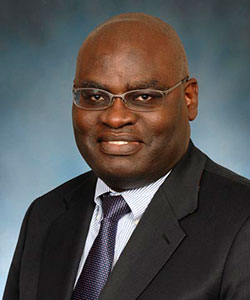
Bioinformatic analysis is used to identify groups of genomic variants that are found more frequently in people with the disease, and then statistical calculations are used to estimate how a person’s variants affect their risk for that disease.
In recent years, researchers have used available large-scale genomic datasets to develop the ability to calculate polygenic risk scores for numerous conditions, such as coronary heart disease and diabetes, and to identify people who are at high risk. This has started to allow clinicians to use polygenic risk scores in combination with a person’s lifestyle and environmental factors to tailor their medical management.
Dr. Adebamowo and her UMSOM colleagues plan to develop a genomic dataset that includes more than 50,000 participants from African, Jamaican, and African American populations. This will look for genetic variants involved in cardiometabolic disorders like high blood pressure, diabetes, and heart disease. They also plan to include an additional 100,000 participants from other databases to explore genomics and lifestyle factors involved in cervical and breast cancer and the spread of the cancer-causing virus HPV.
 “There has been a long recognized need to include more diverse populations in genetic studies, and this new research aims to address this problem,” said E. Albert Reece, MD, PhD, MBA, Executive Vice President for Medical Affairs, UM Baltimore, and the John Z. and Akiko K. Bowers Distinguished Professor and Dean, University of Maryland School of Medicine. "The hope is that it will ultimately provide a robust scientific foundation to enable the medical community to implement these scores into their clinical practice.”
“There has been a long recognized need to include more diverse populations in genetic studies, and this new research aims to address this problem,” said E. Albert Reece, MD, PhD, MBA, Executive Vice President for Medical Affairs, UM Baltimore, and the John Z. and Akiko K. Bowers Distinguished Professor and Dean, University of Maryland School of Medicine. "The hope is that it will ultimately provide a robust scientific foundation to enable the medical community to implement these scores into their clinical practice.”
About the University of Maryland School of Medicine
Now in its third century, the University of Maryland School of Medicine was chartered in 1807 as the first public medical school in the United States. It continues today as one of the fastest growing, top-tier biomedical research enterprises in the world -- with 46 academic departments, centers, institutes, and programs, and a faculty of more than 3,000 physicians, scientists, and allied health professionals, including members of the National Academy of Medicine and the National Academy of Sciences, and a distinguished two-time winner of the Albert E. Lasker Award in Medical Research. With an operating budget of more than $1.2 billion, the School of Medicine works closely in partnership with the University of Maryland Medical Center and Medical System to provide research-intensive, academic and clinically based care for nearly 2 million patients each year. The School of Medicine has nearly $600 million in extramural funding, with most of its academic departments highly ranked among all medical schools in the nation in research funding. As one of the seven professional schools that make up the University of Maryland, Baltimore campus, the School of Medicine has a total population of nearly 9,000 faculty and staff, including 2,500 students, trainees, residents, and fellows. The combined School of Medicine and Medical System (“University of Maryland Medicine”) has an annual budget of over $6 billion and an economic impact of nearly $20 billion on the state and local community. The School of Medicine, which ranks as the 8th highest among public medical schools in research productivity (according to the Association of American Medical Colleges profile) is an innovator in translational medicine, with 606 active patents and 52 start-up companies. In the latest U.S. News & World Report ranking of the Best Medical Schools, published in 2021, the UM School of Medicine is ranked #9 among the 92 public medical schools in the U.S., and in the top 15 percent (#27) of all 192 public and private U.S. medical schools. The School of Medicine works locally, nationally, and globally, with research and treatment facilities in 36 countries around the world. Visit medschool.umaryland.edu
Contact
Office of Public Affairs
655 West Baltimore Street
Bressler Research Building 14-002
Baltimore, Maryland 21201-1559
Contact Media Relations
(410) 706-5260
Related stories
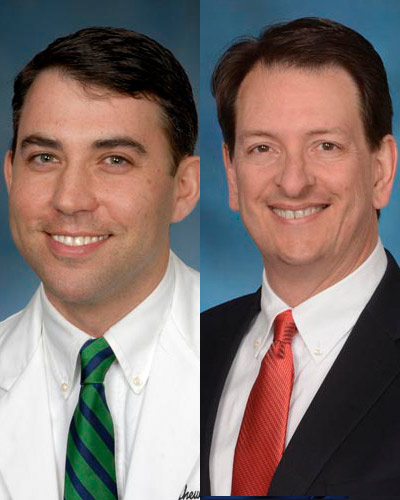
Tuesday, October 19, 2021
UM School of Medicine Establishes Two New Endowed Professorships and Center for Pathogen Research through Private Gifts and Matching State Funds
University of Maryland School of Medicine (UMSOM) Dean E. Albert Reece, MD, PhD, MBA, announced today that the school of medicine has been awarded $1.25 million in matching funds from the Maryland E-Nnovation Initiative Fund (MEIF), administered by the Maryland Department of Commerce. The funds, totaling $2.5 million when combined with private philanthropy, will enable the establishment of a new Center for Pathogen Research. They will also enable the UMSOM to support research professorships in the Department of Microbiology and Immunology and the Department of Neurology.
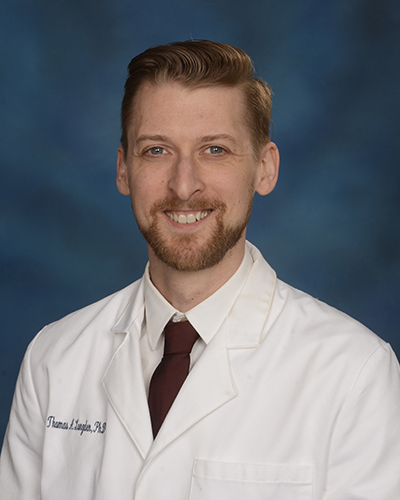
Tuesday, October 06, 2020
UM School of Medicine Scientist Receives Prestigious NIH Director's New Innovator Award
$2.3 million Award Targeted for “High-Risk, High Reward” Research that Aims to Understand Contribution of Blood Flow to Brain Plasticity
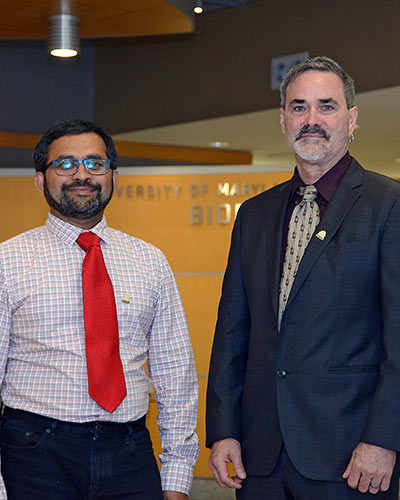
Friday, September 29, 2017
University of Maryland School of Medicine Researchers Identify Millions of New Genes From Bacteria Living on and in the Human Body
A new study of the human microbiome—the trillions of microbial organisms that live on and within our bodies—has uncovered millions of previously unknown genes from microbial communities in the human gut, skin, mouth, and vaginal microbiome, allowing for new insights into the role these microbes play in human health and disease.
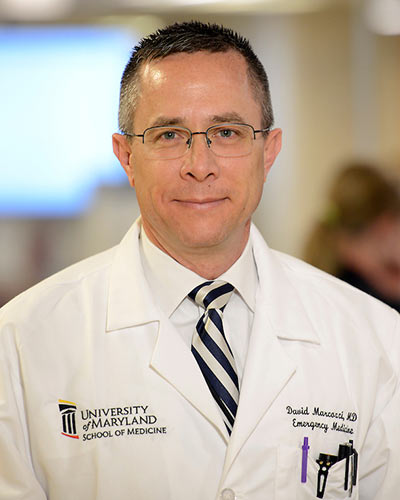
Tuesday, June 27, 2017
University of Maryland School of Medicine Names David Marcozzi to Help Lead Health Disparities and Population Health Program
Jay S. Magaziner, PhD, MS, Hyg, professor and chair of the Department of Epidemiology and Public Health (EPH) at the University of Maryland School of Medicine (UM SOM), along with UM SOM Dean E. Albert Reece, MD, PhD, MBA, announced today that David Marcozzi, MD, MHS-CL, FACEP, an associate professor in the UM SOM Department of Emergency Medicine, has been named as Co-Director of the UM SOM Program in Health Disparities and Population Health, which is based in EPH.

Wednesday, May 31, 2017
When It Comes to Health, Does Zip Code Matter More than Genetic Code?
A range of powerful evidence shows unequivocally that where you live, as well as your social circumstances, play a huge role in your health. This was the message delivered by Anthony B. Iton, MD, JD, MPH, Senior Vice President of Healthy Communities at the California Endowment, in a lecture April 18 at the University of Maryland School of Medicine (UM SOM).

Tuesday, April 04, 2017
University of Maryland School of Medicine Physician Scientist Receives Top Award in Epidemiology from Physician's Group
Mary-Claire Roghmann, MD, MS, Professor of Epidemiology and Public Health, and Associate Dean for Physician Scientist Training and Transdisciplinary Research Advancement, at the University of Maryland School of Medicine (UM SOM), as well an Associate Hospital Epidemiologist and Investigator at the VA Maryland Health Care System, has been awarded the Alvan R. Feinstein Memorial Award from the American College of Physicians (ACP). The award was presented in San Diego at ACP’s Convocation Ceremony on March 30, 2017, during its annual scientific conference, Internal Medicine Meeting 2017.
